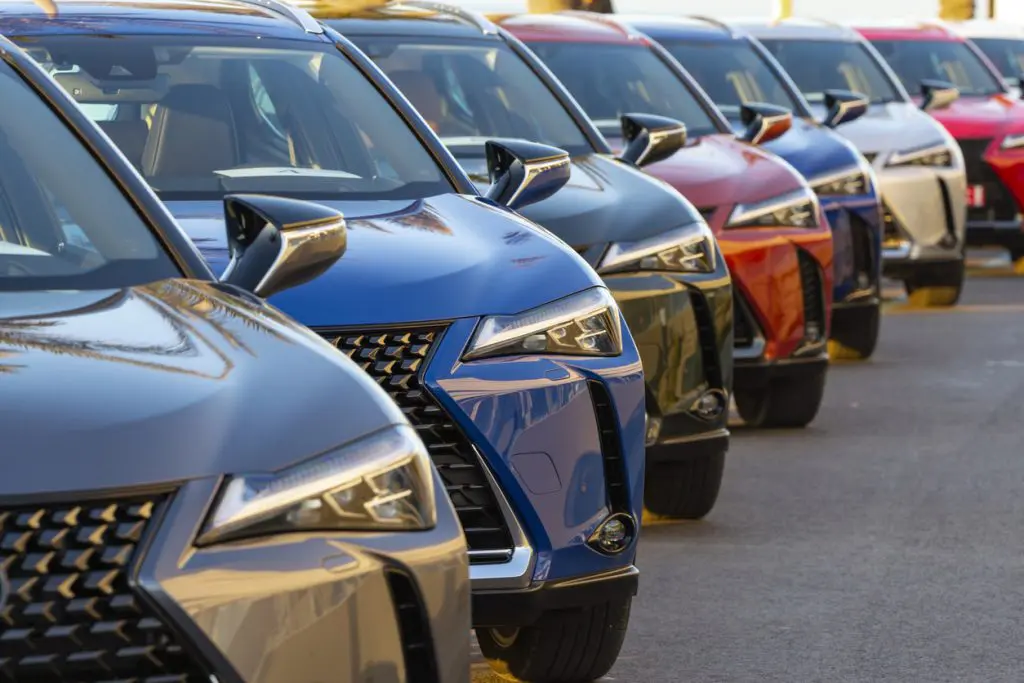In today’s automotive landscape, crossover SUVs have emerged as the go-to choice for families seeking versatility, comfort, and practicality. These vehicles blend the spaciousness and utility of traditional SUVs with the nimble handling and fuel efficiency of smaller cars, making them ideal companions for family adventures. Whether you’re navigating city streets, tackling suburban commutes, or venturing off the beaten path, choosing the right crossover SUV can significantly enhance your family’s travel experiences.
Choosing the right crossover SUV involves considering factors like size, safety ratings, fuel economy, and available features that align with your family’s needs and preferences. This guide explores some of the top crossover SUVs currently available, highlighting their strengths and potential considerations to help you make an informed decision for your next family vehicle.

Factors to Consider When Choosing a Crossover SUV
Choosing the right crossover SUV requires careful consideration of key factors tailored to your family’s needs and preferences. Size and seating capacity are crucial; assess how many passengers you typically transport and whether you need ample cargo space for gear or luggage. Safety features should be a priority, with advanced technologies like adaptive cruise control and lane-keeping assist enhancing driver and passenger safety. Fuel efficiency is another critical factor; while crossover SUVs generally offer better mileage than traditional SUVs, variations in engine size and drivetrain can affect efficiency.
Choosing the right crossover SUV involves evaluating several key factors to ensure it meets your family’s needs and preferences. Here are crucial considerations to keep in mind:
1. Size and Seating Capacity:
- Pros: Offers ample space for passengers and cargo, suitable for larger families or those needing extra room.
- Cons: Larger size may be harder to maneuver in tight spaces or parking lots.
2. Safety Features:
- Pros: Advanced safety technologies like blind-spot monitoring, rearview cameras, and collision avoidance systems enhance driver and passenger safety.
- Cons: Higher trim levels or optional packages may be required to access the most advanced safety features.
3. Fuel Efficiency:
- Pros: Generally more fuel-efficient than traditional SUVs, resulting in lower fuel costs over time.
- Cons: Some larger crossover models may have lower fuel efficiency due to increased size and weight.
4. Cargo Space:
- Pros: Provides ample room for groceries, sports gear, or luggage, ideal for family trips and daily errands.
- Cons: Smaller crossover models may have limited cargo space compared to larger SUVs.
5. Technology and Infotainment Options:
- Pros: Offers modern amenities such as touchscreen displays, smartphone integration, and premium sound systems for enhanced driving experience.
- Cons: Advanced technology features may be included in higher trim levels or as optional upgrades, increasing overall cost.
6. Reliability and Maintenance Costs:
- Pros: Many crossover SUVs boast strong reliability ratings, reducing the likelihood of frequent repairs.
- Cons: Maintenance costs can vary, with some models requiring more expensive parts or specialized service.
Considering these factors will help you narrow down your options and select a crossover SUV that aligns with your family’s lifestyle and budget. Each factor plays a crucial role in ensuring your chosen vehicle meets your expectations for comfort, safety, and overall enjoyment during family adventures.
Top Crossover SUVs for Family Adventures

When it comes to choosing a crossover SUV for family adventures, several models stand out for their combination of comfort, safety features, and practicality. These top crossover SUVs cater to different priorities such as space, safety, fuel efficiency, and technology. By evaluating these factors against your family’s specific needs and preferences, you can select the ideal vehicle to enhance your adventures and daily commutes alike.
Here are some top picks to consider:
1. Honda CR-V
Overview: The Honda CR-V is renowned for its reliability, spacious interior, and fuel efficiency, making it a popular choice among families.
Pros:
- Ample cargo space and comfortable seating for five.
- Excellent fuel economy, especially with the hybrid option.
- Strong safety ratings and standard Honda Sensing suite.
Cons:
- Infotainment system can be complex to use.
- Ride quality can be slightly firm on rough roads.
2. Toyota RAV4
Overview: The Toyota RAV4 combines rugged styling with a comfortable ride and a reputation for longevity, appealing to families seeking adventure.
Pros:
- Spacious interior with generous cargo capacity.
- Strong reliability and resale value.
- Available hybrid model for enhanced fuel efficiency.
Cons:
- Interior materials in lower trims may feel less luxurious.
- Base engine can be noisy under heavy acceleration.
3. Subaru Forester
Overview: Known for its all-wheel-drive capability and practical design, the Subaru Forester is a favorite among outdoor enthusiasts and families alike.
Pros:
- Standard all-wheel drive for enhanced traction and stability.
- Impressive cargo space and excellent visibility.
- EyeSight driver assistance features come standard.
Cons:
- Engine power may feel adequate but not sporty.
- Interior styling and materials are functional but not premium.
4. Ford Escape
Overview: The Ford Escape offers a dynamic driving experience with a range of engine options and tech features, appealing to families with diverse needs.
Pros:
- Engaging handling and available turbocharged engines.
- User-friendly SYNC infotainment system.
- Good balance of ride comfort and agility.
Cons:
- Rear-seat legroom may be tighter compared to competitors.
- Some advanced safety features are optional rather than standard.
Each of these crossover SUVs brings its own strengths to the table, catering to different preferences and priorities for family adventures. By weighing the pros and cons and considering factors like size, safety features, and fuel efficiency, you can find the perfect vehicle to accommodate your family’s lifestyle and enhance your travel experiences
Table of Top Crossover SUVs
Here’s a detailed comparison of some of the top crossover SUVs that cater to family adventures in the United States. This table summarizes key features, pros, cons, and price ranges to help you make an informed decision:
| SUV Model | Pros | Cons | Key Features | Specifications | Safety Ratings | Price Range |
| Honda CR-V | – Spacious interior with ample cargo room. | – Complex infotainment system. | – Honda Sensing safety suite. | – 1.5L turbocharged engine, seating for 5, up to 39.2 cu ft cargo space. | IIHS Top Safety Pick+ | Starting around $25,000 |
| Toyota RAV4 | – Excellent reliability and resale value. | – Noisy base engine under acceleration. | – Available hybrid model for fuel efficiency. | – 2.5L engine, up to 69.8 cu ft cargo space, Toyota Safety Sense P. | IIHS Top Safety Pick+ | Starting around $27,000 |
| Subaru Forester | – Standard all-wheel drive enhances traction. | – Interior materials feel utilitarian. | – EyeSight driver assistance technology. | – 2.5L engine, up to 76.1 cu ft cargo space, X-Mode for off-road capability. | IIHS Top Safety Pick+ | Starting around $24,000 |
| Ford Escape | – Engaging handling and multiple engine options. | – Tighter rear-seat legroom compared to rivals. | -SYNC infotainment system with available SYNC 3. | – EcoBoost engines available, up to 65.4 cu ft cargo space, Ford Co-Pilot360 safety features. | IIHS Top Safety Pick | Starting around $26,000 |
Choosing the Right Crossover SUV:
- Honda CR-V: Ideal for families prioritizing spaciousness and fuel efficiency, though its infotainment system can be complex.
- Toyota RAV4: Known for reliability and offering a hybrid option, but may be noisy under heavy acceleration and basic interior materials.
- Subaru Forester: Standard all-wheel drive and practicality make it great for outdoor adventures, but its interior might feel basic.
- Ford Escape: Offers dynamic handling and advanced tech features, suited for those looking for versatility despite tighter rear-seat space.
This table serves as a comprehensive guide to understanding the strengths and potential considerations of each crossover SUV, empowering you to choose the best option that fits your family’s lifestyle and preferences.
Conclusion

Choosing the right crossover SUV for your family’s adventures involves careful consideration of several factors to ensure it meets your practical needs and enhances your driving experience. After evaluating size, safety features, fuel efficiency, and more, you can make an informed decision that aligns with your lifestyle and budget. Here’s a recap of what we’ve covered:
Key Considerations When Choosing a Crossover SUV:
- Size and Seating Capacity: Determine how much space you need for passengers and cargo.
- Safety Features: Look for advanced driver assistance systems that prioritize your family’s safety.
- Fuel Efficiency: Consider your typical driving habits to maximize fuel savings.
- Technology and Infotainment: Evaluate available features like navigation systems and smartphone integration.
- Reliability and Maintenance Costs: Research reliability ratings and anticipate maintenance expenses over time.
Choosing the Best Crossover SUV for Your Family:
- Honda CR-V: Offers excellent reliability and fuel efficiency, with spacious interiors ideal for families. Consider its slightly firm ride quality and complex infotainment system.
- Toyota RAV4: Known for durability and resale value, the RAV4 provides ample cargo space and a hybrid option for eco-conscious families. However, base engine noise and interior materials in lower trims may be drawbacks.
- Subaru Forester: With standard all-wheel drive and impressive cargo space, the Forester is perfect for outdoor adventures. It excels in practicality but may lack a sporty engine feel and premium interior finishes.
- Ford Escape: Boasting engaging handling and a user-friendly SYNC system, the Escape suits families seeking versatility and agility. Consider its tighter rear-seat legroom and optional safety features.
By carefully weighing these factors and comparing the pros and cons of each model, you can confidently select a crossover SUV that enhances your family’s travels and accommodates your everyday needs. Happy driving!






